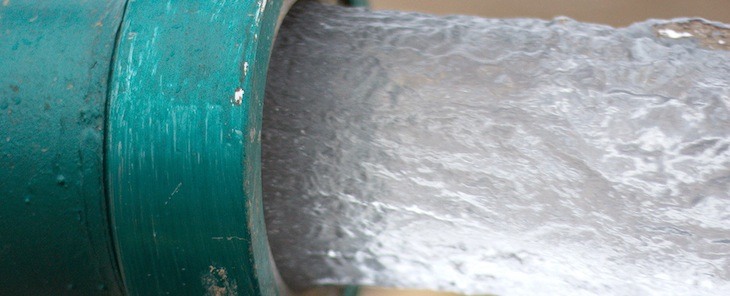Water, sewer bill payment help focus of Fort Smith Board neighborhood meeting
by February 13, 2019 8:43 pm 992 views

Fort Smith residents struggling to pay water and sewer bills have a relief option through Project Concern. The city’s utility assistance program was developed in 1983 to help Fort Smith seniors and other citizens meeting certain income thresholds.
Ward 1 Director Keith Lau asked Jennifer Walker, director of finance, to address residents about the program at the Ward 1 Neighborhood Meeting with the mayor and board of directors Tuesday (Feb. 12) at the University of Arkansas at Fort Smith.
“We do offer some financial assistance. It is income based, but the city’s income levels are quite a bit higher than other utility assistance programs,” Walker said.
Project Concern allows for incomes 165% above the poverty line, Walker said. A family of three could have a qualifying annual income of up to $33,264. A family of five can qualify with an annual income up to $46,926, according to the income guidelines found with the application on the city’s website.
It takes a few weeks for applications to be processed but those who do qualify will receive: a 19% discount on sanitation services; a 50% discount on sewer services; and 50% off the water services base charge, Walker said.
“A family of two can save $17 to $25 a month,” Walker said.
Lau wanted to make certain all those attending Tuesday’s meeting knew of the program because water bills in the city are “a huge issue right now,” he said.
The city has been dealing with a federal consent decree for the past few years, which has effected resident’s sewer and water bills. The city entered into a federal consent decree with the U.S. Department of Justice in late 2014. The consent decree requires the city to make an estimated $480 million worth of sewer upgrades over the course of 12 years.
“Our residents have seen their water and sewer bills rise 167% since 2015,” City Administrator Carl Geffken said in a statement on the consent decree issued in August. “That’s about 2% of median household income, which EPA’s own affordability guidelines say is the maximum that can be expected of ratepayers. Based on the City’s proposals, $200 to $256 million will be spent over the course of the Consent Decree, 2015 to 2026. The City has spent $100 million from 2015 to date and will spend $100 to $156 million over the next eight years. This is the lion’s share of the work completed by the Consent Decree. Whatever work remains will be more localized sewer improvements which can be more than adequately addressed with ADEQ.”
Lau said the board and city administration was working diligently to do all that needs to be done and great strides have been made.
“I understand everyone is feeling the pressure. We are working through it. It just comes with a price tag that is huge,” Lau said.
One step the city is taking to help the water issue is installing new water meters. The city has installed 18,000 new meters and will have the remainder of the new meters installed by the end of the year, Geffken said. Testing of the old meters that were been replaced shows that 73% of the meters were reading inaccurately, Geffken said. Many residents are seeing a change in their water bills due to the new meters more accurate readings, Geffken said.
The city also recently approved the hiring of additional employees to work primarily on repairing about 700 leaks in water lines throughout the city, a task that should be complete within 18 months.
“When this is done across the whole system, the cost of the production will be accurately measured,” Lau said. “When leaks are fixed and the inaccurate readings are correct, it will lower the cost of the production.”
The savings to the cost of providing water will allow the city to save money and work more efficiently, but it will not trickle down to the customers, Geffken said.
“If you look at it in the short term, then you think water bills should go down, but we have a $100 million water transfer project to get water from Lake Fort Smith to the city,” Geffken said. “I don’t see that rates will decrease. We have to invest in the future.”
Fort Smith has plans to replace approximately 35 miles of main water lines from the water treatment plant at Lake Fort Smith to Fort Smith over the next 10 years. The new water lines will be bigger, more reliable and will provide more water to the region. Fort Smith provides water not only to Fort Smith but also to Barling, Central City and more in the area.
